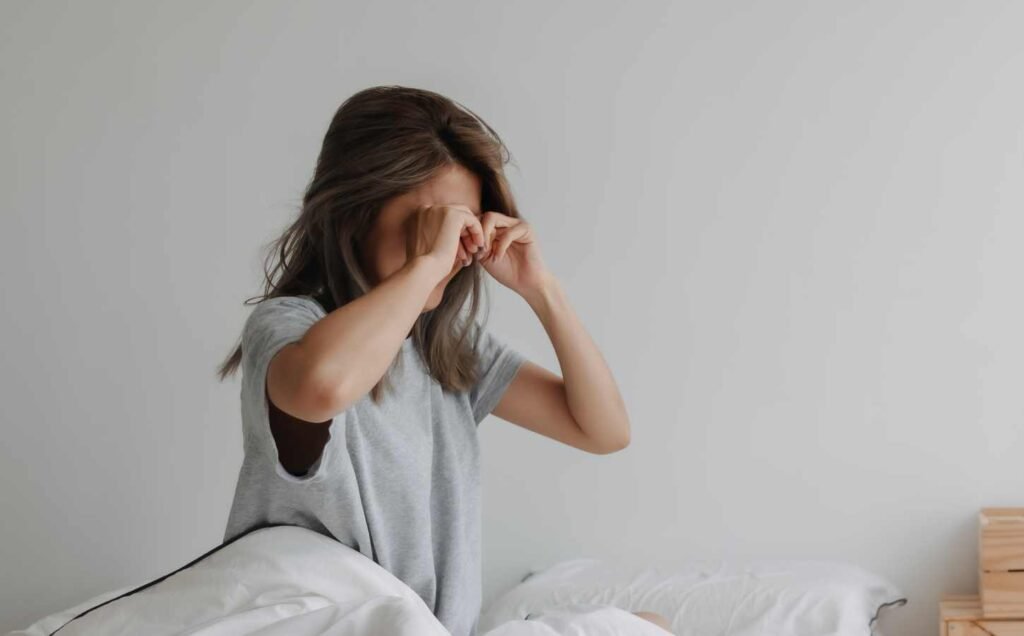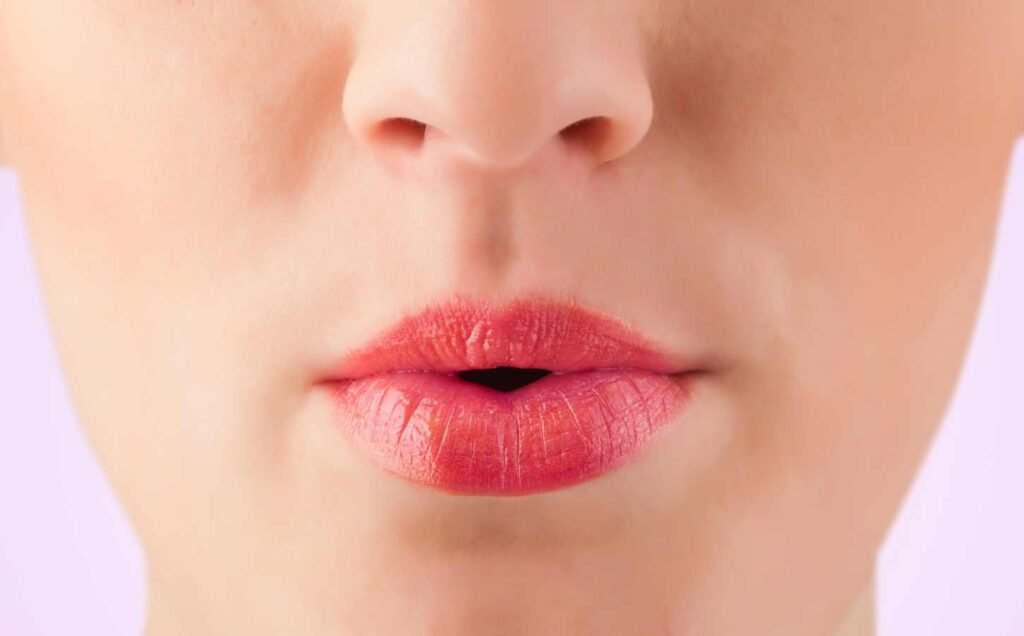Many people experience the feeling of being tired but can’t sleep.
This can be a frustrating and exhausting experience that can disrupt daily life. There are many factors that can contribute to this issue, such as stress, anxiety, and certain medical conditions.
Stress and anxiety are common causes of difficulty falling asleep. When the mind is racing with thoughts and worries, it can be difficult to relax and drift off to sleep. Additionally, certain medical conditions such as sleep apnea or restless leg syndrome can also make it difficult to fall asleep and stay asleep. It is important to identify the underlying cause of the issue in order to find an effective solution.
I highly recommend the above video by Sarah Jeffries, a registered nurse and nurse educator, she has some great advice for anyone who is tired but can’t sleep.
Understanding Sleep Problems
Causes of Insomnia
Insomnia is a common sleep disorder that can make you tired but can’t sleep. It can be caused by a number of factors including stress, anxiety, depression, medical conditions, and medications. In some cases, poor sleep habits or an irregular sleep schedule can also contribute to insomnia.
Effects of Sleep Disorders
Sleep disorders can have a significant impact on a person’s overall health and well-being. Lack of sleep can lead to fatigue, irritability, and difficulty concentrating. It can also increase the risk of accidents and injuries. Chronic sleep problems have been linked to a number of medical conditions, including heart disease, diabetes, and obesity.
Recognizing Symptoms and Signs
Recognizing the symptoms of sleep disorders is an important first step in getting the right treatment. Some common symptoms of sleep problems include difficulty falling asleep, waking up frequently during the night, and feeling tired or groggy during the day. Other signs may include snoring, gasping or choking during sleep, and restless leg syndrome.
If you are experiencing sleep problems, it is important to talk to your doctor. They can help you identify the underlying cause of your sleep disorder and recommend appropriate treatment options. This may include lifestyle changes, such as improving sleep habits and reducing stress, or medication to help you sleep.
Lifestyle and Environmental Factors
Impact of Diet and Exercise
Diet and exercise play a crucial role in maintaining a healthy lifestyle, and they also affect sleep quality. Consuming a diet high in sugar, processed foods, and caffeine can interfere with sleep patterns, making it difficult to fall asleep. On the other hand, eating a balanced diet that includes lean protein, whole grains, and fresh fruits and vegetables can promote better sleep.
Similarly, regular exercise can improve sleep quality and duration. Exercise helps to reduce stress and anxiety, which are common factors that contribute to sleeplessness. However, it is important to avoid exercising too close to bedtime, as this can cause the body to remain alert and make it difficult to fall asleep.
Role of Stress and Anxiety
Stress and anxiety are common factors that can contribute to sleeplessness. When the mind is racing with worries and concerns, it can be difficult to relax and fall asleep. Simple relaxation techniques such as deep breathing, meditation, and yoga can help to reduce stress and promote relaxation.
In addition, establishing a regular bedtime routine can help to reduce stress and anxiety. This can include activities such as taking a warm bath, reading a book, or listening to calming music.
Influence of Electronic Devices
Electronic devices such as smartphones, tablets, and laptops emit blue light, which can interfere with the body’s natural sleep-wake cycle. Exposure to blue light can suppress the production of melatonin, a hormone that regulates sleep.
To promote better sleep, it is important to limit exposure to electronic devices before bedtime. This can include turning off devices at least 30 minutes before bedtime and avoiding the use of electronic devices in the bedroom.
Overall, lifestyle and environmental factors play a significant role in sleep quality. By making simple changes to diet, exercise, and bedtime routines, individuals can improve their sleep patterns and promote better overall health.
There are affiliate links on this page, which means we may earn a small commission should you buy after clicking on one, or more of those links. At no extra cost to you.
Medical and Biological Influences
Hormonal Changes and Health Conditions
Hormonal changes and certain health conditions can affect a person’s ability to fall asleep or stay asleep. For example, women may experience sleep disturbances during pregnancy or menopause due to hormonal changes. Similarly, individuals with thyroid disorders or diabetes may also experience sleep problems due to imbalances in their hormones.
Medications and Substances
Certain medications and substances can interfere with a person’s ability to fall asleep or stay asleep. For instance, stimulants such as caffeine and nicotine can disrupt the natural sleep cycle, making it difficult to fall asleep. Alcohol, on the other hand, may help a person fall asleep faster but can lead to disrupted sleep later in the night. Additionally, some medications such as antidepressants and beta-blockers can also interfere with sleep.
Sleep Apnea and Other Disorders
Sleep apnea and other sleep disorders can also contribute to a person feeling tired but unable to sleep. Sleep apnea is a condition in which a person’s breathing is interrupted during sleep, leading to disrupted sleep and daytime fatigue. Other sleep disorders such as restless leg syndrome and narcolepsy can also lead to sleep disturbances and fatigue.
In conclusion, a variety of medical and biological factors can contribute to a person feeling tired but unable to sleep. It is important to address any underlying health conditions or medication use with a healthcare provider and to practice good sleep hygiene habits to improve sleep quality.
Strategies for Better Sleep
Developing a Sleep Hygiene Routine
Developing a sleep hygiene routine is a crucial step in improving sleep quality. This routine involves setting a regular bedtime and wake-up time, avoiding caffeine and alcohol before bedtime, and creating a relaxing sleep environment. Other helpful tips include avoiding screen time before bed, keeping the bedroom cool and dark, and using comfortable bedding.
Relaxation and Mindfulness Techniques
Relaxation and mindfulness techniques can also be helpful in promoting better sleep. Meditation, deep breathing exercises, and progressive muscle relaxation are effective techniques that can help calm the mind and body before bedtime. It is also important to avoid stressful activities before bed, such as work or intense exercise.
When to Consult a Sleep Specialist
If these strategies do not improve sleep quality, it may be necessary to consult a sleep specialist. A doctor or sleep specialist can evaluate and diagnose any underlying sleep disorders, such as sleep apnea or insomnia. Treatment options may include cognitive behavioral therapy, medication, or other therapies.
Overall, developing a sleep hygiene routine, practicing relaxation and mindfulness techniques, and seeking medical attention when necessary can all contribute to better sleep quality. By making these adjustments, individuals can improve their overall health and well-being.
Difficulty Falling Asleep and Waking Up: Causes and Solutions

Tired but can’t sleep? Having difficulty falling asleep and waking up are common sleep disorders that affect millions of people worldwide. Insomnia is the most common sleep disorder and is characterized by difficulty falling or staying asleep. Short-term insomnia lasts for a few days to a few weeks, while chronic insomnia lasts for a month or longer.
Continue reading: Difficulty Falling Asleep and Waking Up
Discover the Tongue Trick for Better Sleep: The U.S. Marine’s Secret

This tongue trick is designed to help you fall asleep in just two minutes by stimulating a specific nerve in your tongue, known as the “sleep nerve,” to promote relaxation and better sleep.
Continue reading: Discover the Tongue Trick for Better Sleep






